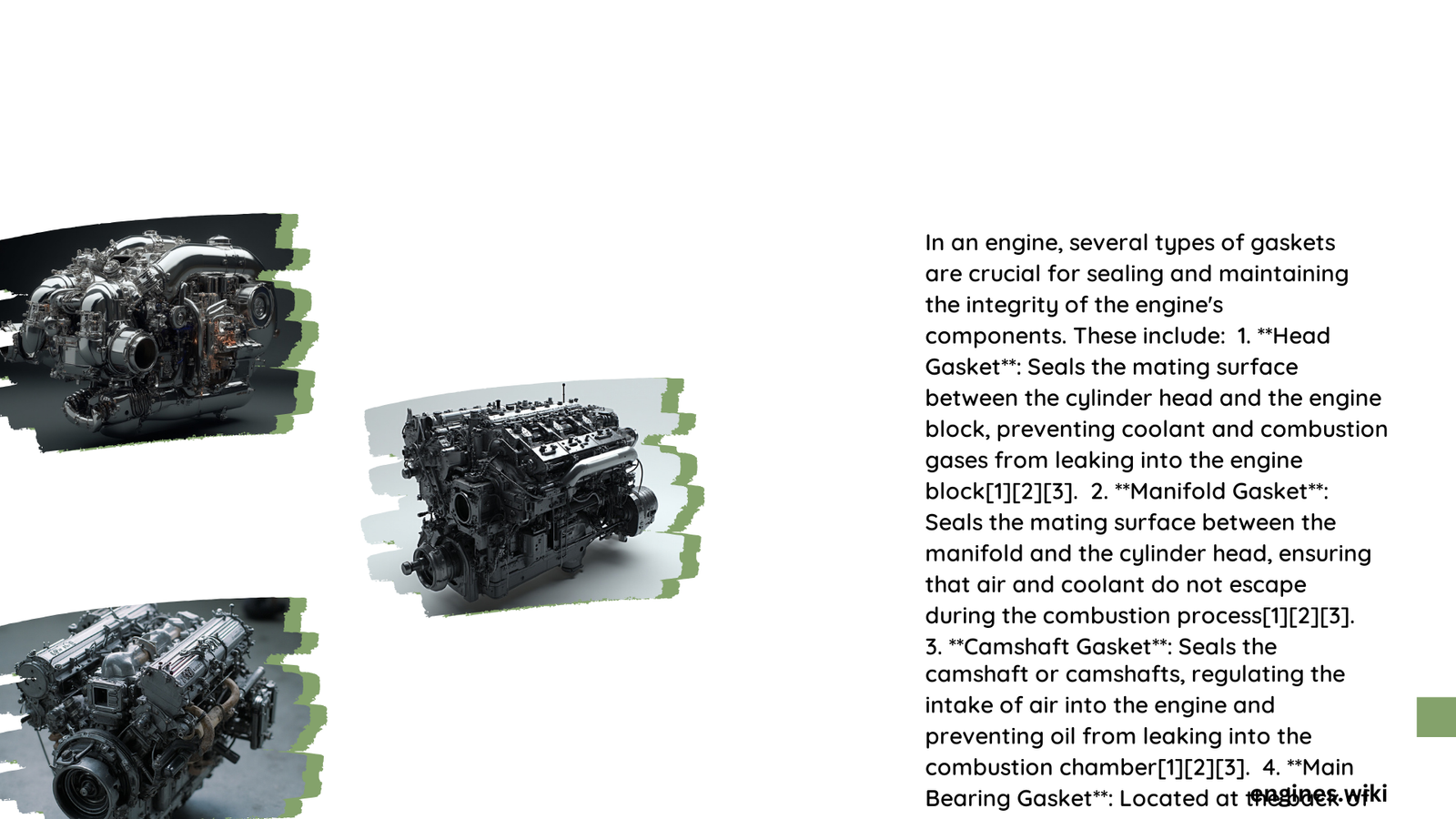Engine gaskets are precision-engineered sealing components that play a crucial role in preventing fluid leaks, maintaining compression, and ensuring optimal performance across various engine systems. These critical parts create tight seals between different engine components, protecting against potential mechanical failures and maintaining the intricate balance of an engine’s complex internal environment.
What Are the Primary Types of Engine Gaskets?
Engine gaskets are specialized sealing components designed to prevent leaks and maintain proper pressure in different engine sections. Here’s a comprehensive breakdown of the most critical gasket types:
Why Do Cylinder Head Gaskets Matter?
Cylinder head gaskets are perhaps the most critical gasket in an engine. They perform multiple essential functions:
- Seal Combustion Chambers: Prevent high-pressure gases from escaping
- Block Fluid Passages: Stop coolant and oil from mixing or leaking
- Maintain Compression: Ensure maximum engine efficiency
| Gasket Type | Primary Function | Critical Performance Characteristics |
|---|---|---|
| Cylinder Head Gasket | Seal cylinder head and engine block | High temperature resistance, compression maintenance |
| Oil Pan Gasket | Prevent oil leaks | Oil and grease resistance |
| Intake Manifold Gasket | Control air-fuel mixture | Airtight sealing, chemical resistance |
How Do Different Gasket Materials Impact Performance?
Gasket materials are carefully selected based on specific engine requirements:
- Metal Gaskets
- Ideal for high-temperature applications
- Excellent pressure resistance
-
Used in extreme performance engines
-
Composite Gaskets
- Blend of multiple materials
- Flexible and adaptable
-
Cost-effective solution for standard engines
-
Multi-Layer Steel (MLS) Gaskets
- Advanced technology
- Multiple metal layers for superior sealing
- Commonly used in modern high-performance engines
What Symptoms Indicate Gasket Failure?
Recognizing gasket failure early can prevent significant engine damage:
- Visible Fluid Leaks
- Unexpected Performance Drops
- White Smoke from Exhaust
- Overheating Engine
- Unusual Engine Noises
How Often Should Gaskets Be Replaced?
Gasket replacement depends on several factors:
- Vehicle make and model
- Driving conditions
- Maintenance history
- Typical lifespan: 50,000 to 100,000 miles
What Are Replacement Considerations?
When replacing engine gaskets, consider:
- Precise measurements
- Quality of replacement materials
- Professional installation
- Manufacturer specifications
- Total replacement cost ($500 – $2,000)
Expert Insights

Professional mechanics emphasize that gaskets are not just simple sealing components but critical engineering solutions that maintain an engine’s integrity. Proper selection, installation, and maintenance can significantly extend an engine’s operational life.
Pro Tips for Gasket Maintenance
- Regular Inspections
- Use High-Quality Replacement Parts
- Follow Manufacturer Recommendations
- Address Leaks Immediately
Conclusion
Understanding engine gaskets is crucial for vehicle owners and automotive enthusiasts. These small but mighty components ensure your engine operates efficiently, preventing costly damage and maintaining peak performance.
